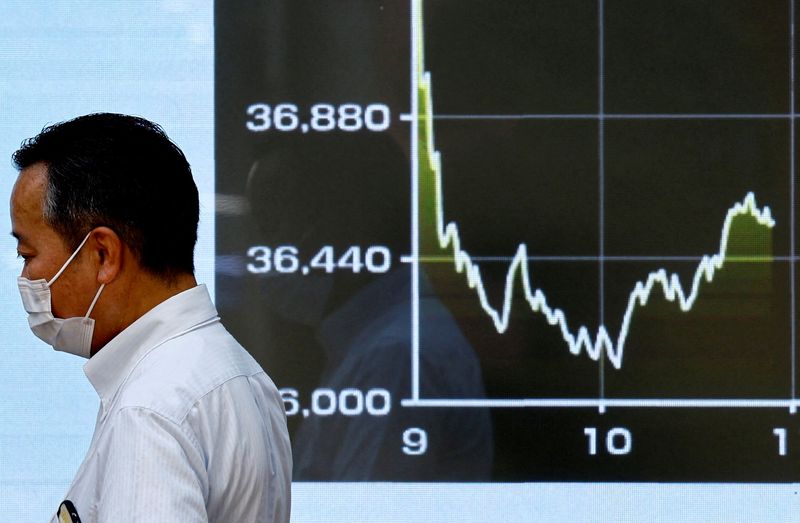
By Nell Mackenzie, Kevin Buckland and Naomi Rovnick
LONDON/TOKYO (Reuters) – European shares slid on Monday, joining a worldwide selloff sparked by fears that U.S. President Donald Trump’s tariffs on Canada, Mexico and China mark an opening salvo in a global trade war that would curb economic growth internationally.
The pan-European STOXX 600 index was down 1.3% at 0845 GMT, set for its biggest one-day slide this year.
Futures for Wall Street’s S&P 500 also fell 1.4%, while those on the tech-heavy Nasdaq fell 1.6%. Futures on the Russell 2000 index of small cap stocks – viewed as major beneficiaries of Trump’s policies – fell 2.3%.
Europe’s biggest automakers, which are vulnerable to trade duties, sank by more than 3% while the region’s technology shares were also among the major losers, falling over 2%. The euro currency dropped 1.1%.
In three executive orders, the United States imposed 25% tariffs on Mexican and most Canadian imports and a further 10% on goods from China, starting on Tuesday.
Britain’s FTSE 100 fell 1.5%, while the pound dropped 0.7% after Trump told reporters on Sunday that while the country was “out of line” when it came to trade, it may be able to avoid tariffs.
“We’ll see how things work out. It might happen with them, but it will definitely happen with the European Union, I can tell you that,” said Trump.
The President warned that Americans might feel “some pain” as tariffs are expected to increase consumer prices in the United States, while the effect of the trade war is expected to be felt far beyond North America.
The Mexican peso tumbled more than 2% to touch its lowest in nearly three years against the dollar. Mexican President Claudia Sheinbaum ordered retaliatory tariffs, as did Canada, with Prime Minister Justin Trudeau warning Americans that tariffs would have real consequences for them.
The tit-for-tat moves led to investors buying U.S. dollars, selling stocks and fretting about inflation.
Japan’s Nikkei share average ended the day down almost 3% and Australia’s benchmark – often a proxy trade for Chinese markets – dropped 1.8%.
Stocks in Hong Kong, which include listings of Chinese companies, finished flat upon reopening from Lunar New Year holidays. Mainland Chinese markets resume trading on Wednesday.
‘A LITTLE BIT OF SHOCK’
Trump’s move was the first strike in what could usher in a destructive global trade war and drive a surge in U.S. inflation that would “come even faster and be larger than we initially expected,” said Paul Ashworth of Capital Economics.
